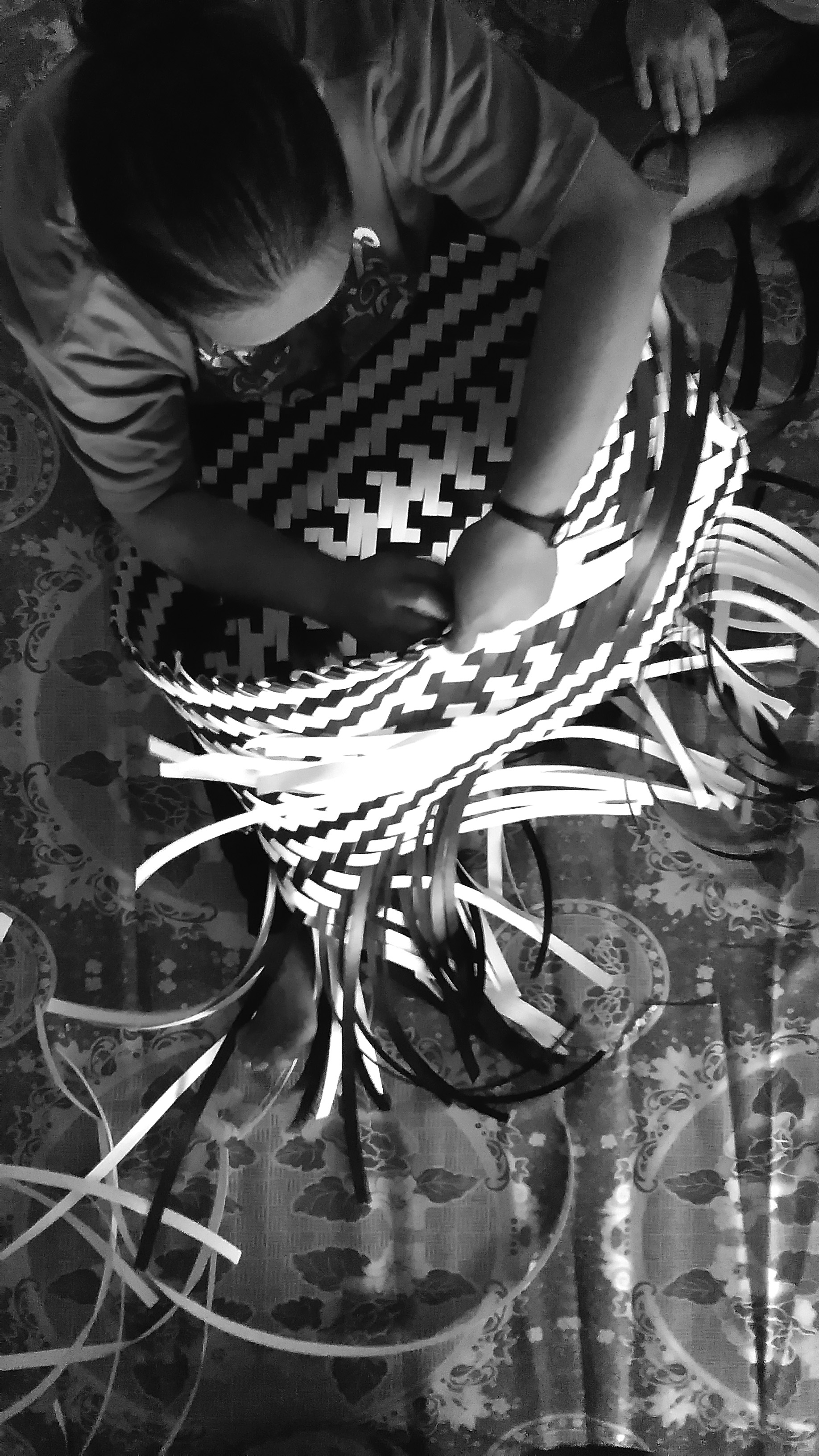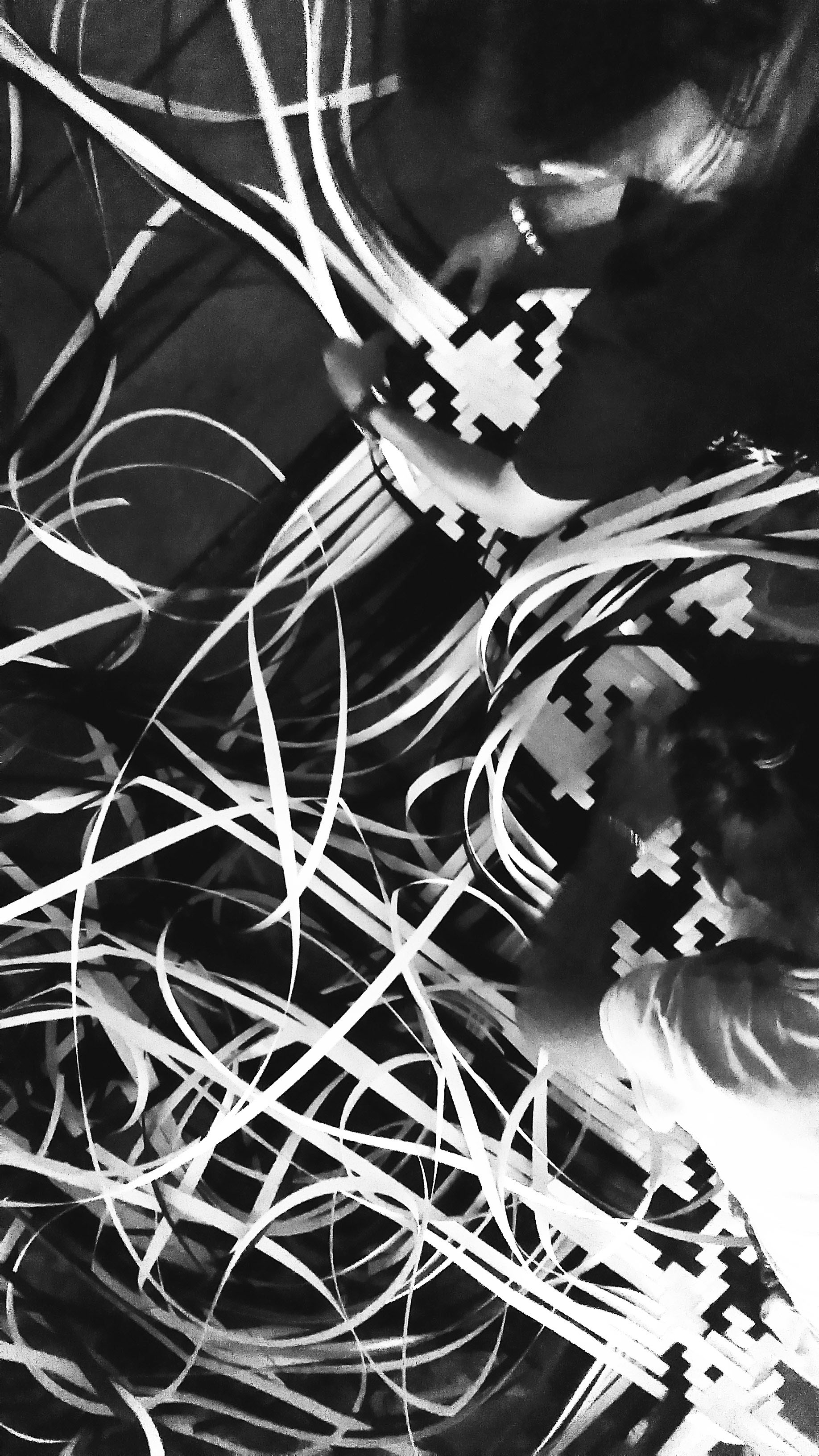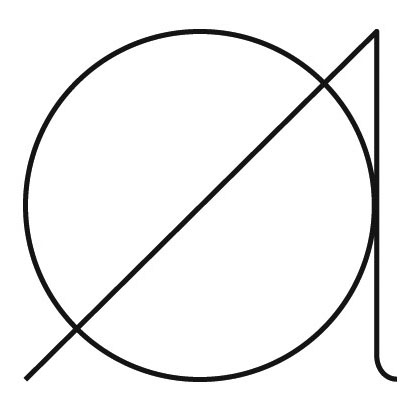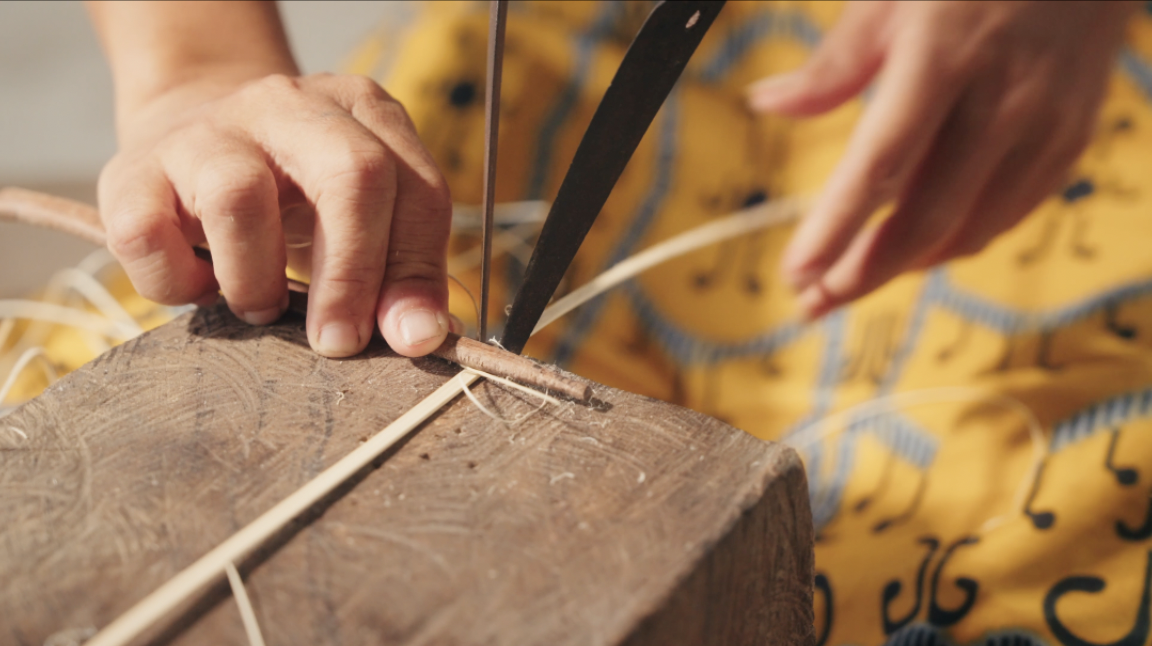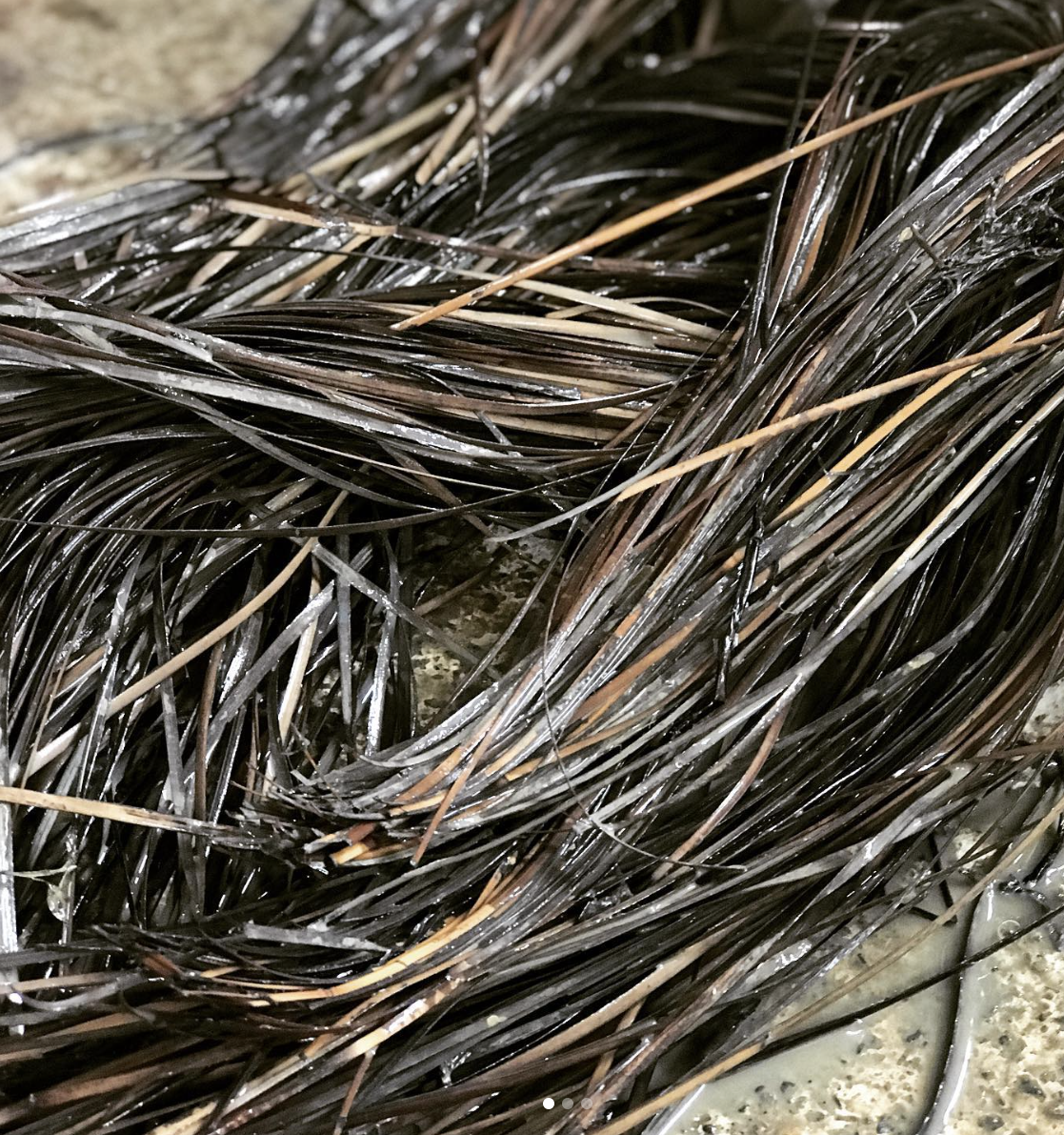project
‘Ketupat’
KLOE Hotel
Kapas Heights
LOKL
Residential
Cosentino
Fritz, Troika Sky Dining
Capsule Transit Max
Tanoti
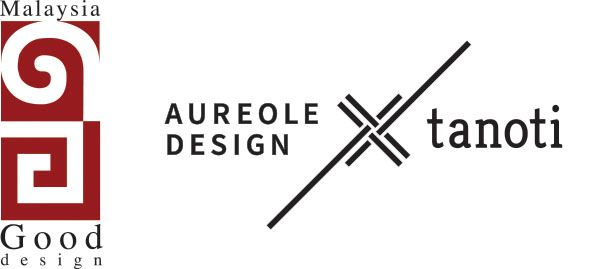
The Ketupat Pouf Series
Recipient of the
Malaysia Good Design Award 2023. A joint collaboration with Tanoti, Sarawak.
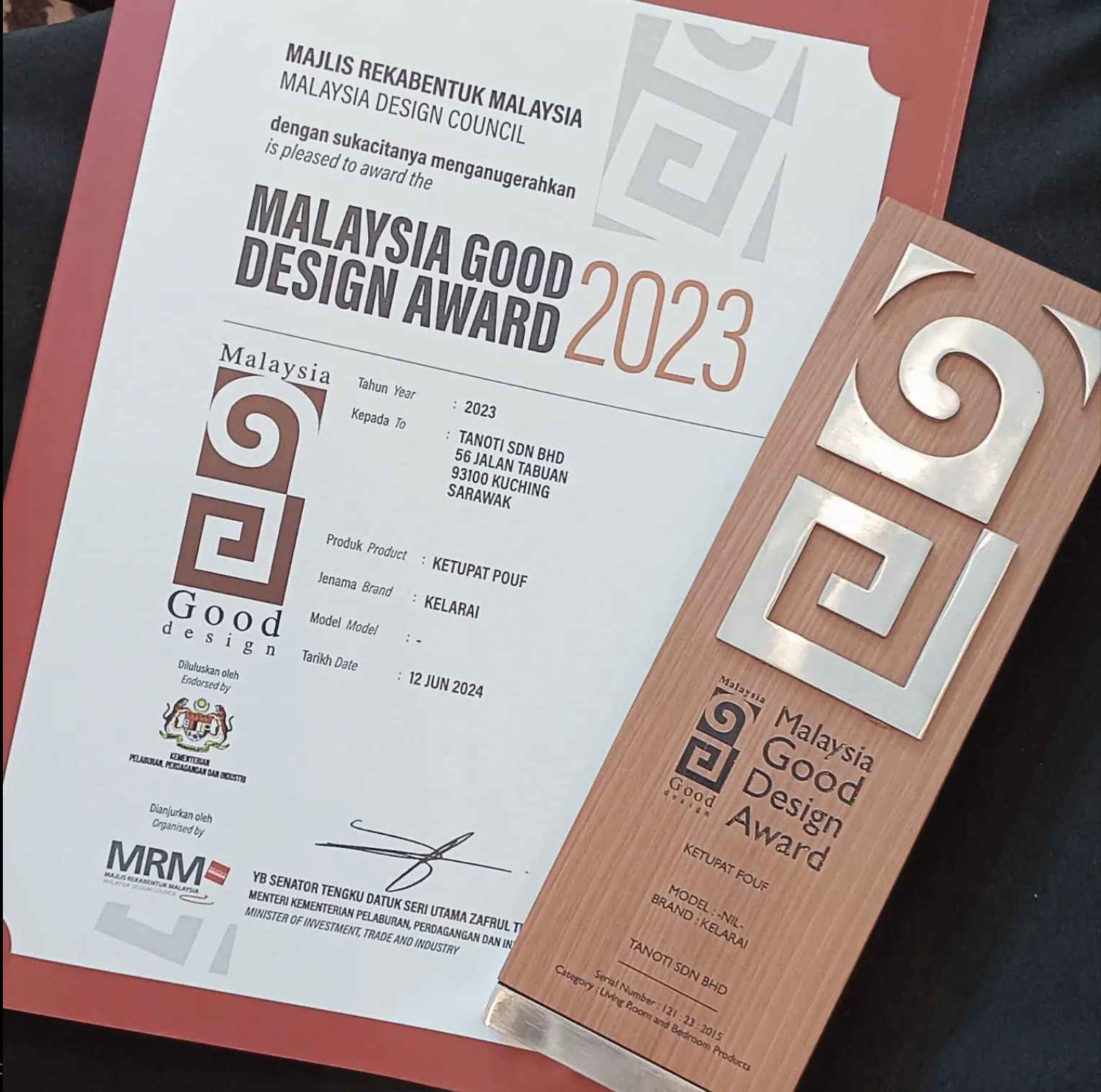
-
This is a social innovation venture between the Penan community of Sarawak, Tanoti and Aureole Design.
Aureole design’s collaboration with Tanoti seeks to empower these remote forest communities through rattan craft development to introduce sustainable income generating opportunities and adapting these traditional crafts into new variations of home products. The design collaboration hopes to elevate the artistic vision of the craft – representing them into present design context and to preserve its valuable contribution to our cultural heritage.
This is the ‘Ketupat’ series. The ‘Ketupat’ in Malaysia is a type of rice dumpling wrapped in a pouch of woven palm leaves. Aureole’s ‘Ketupat’ series takes inspiration from these hand woven palm leaves, adapting them in rattan. This series is a collection of low seating poufs – an adaptation of our ‘Asian floor culture’ and is expandable into bespoke dimensions base on requirements.
The weave panels for this series are hand plaited by the Penan artisans of Long Kawi village, residing along the Patah River (Sarawak’s Middle Baram region). The peoples living in these environments have been using this vine for generations. Today, they continue to practise the same techniques learned from their ancestors, hand harvesting, processing by hand, dyeing colours using plants they collect from their environs, and plaiting by hand. The Penans, who are known as Borneo’s last nomads, learn to exist with the rattan. As they know that the fibre generates constantly, they also learn to harvest only when the fibres are required, for instance, for projects like this – leaving the rest of the rattan in the jungle to grow until it is next required.
The design patterns for this ‘Ketupat’ series are geometrically layout for the graphic shapes to form when assembled. They are weaved in rollable strips and the simplicity of the design form makes them compact as well as cost effective to be transported out from these remote forest communities and improve sustainability with the reduced packing process to end users.
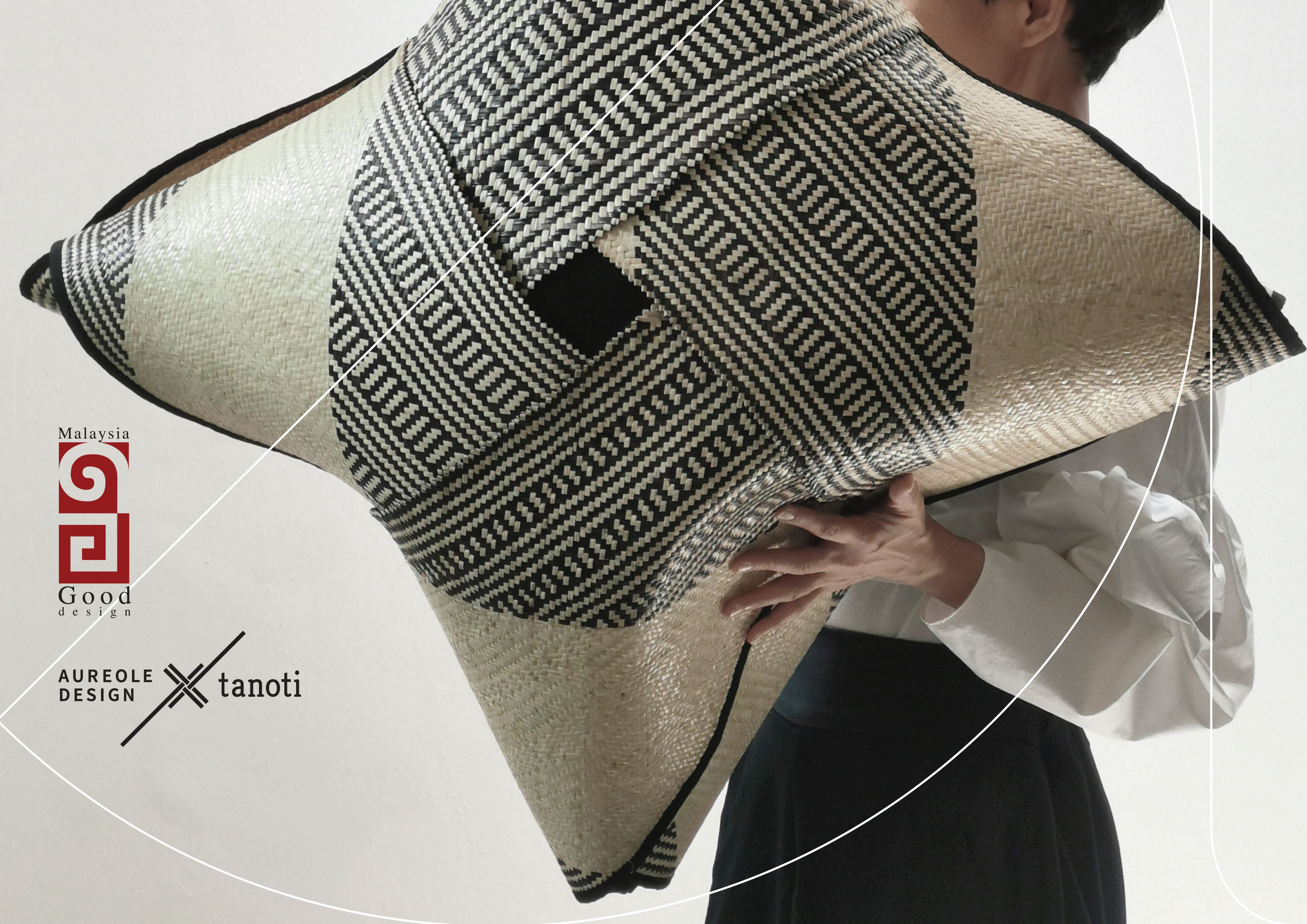

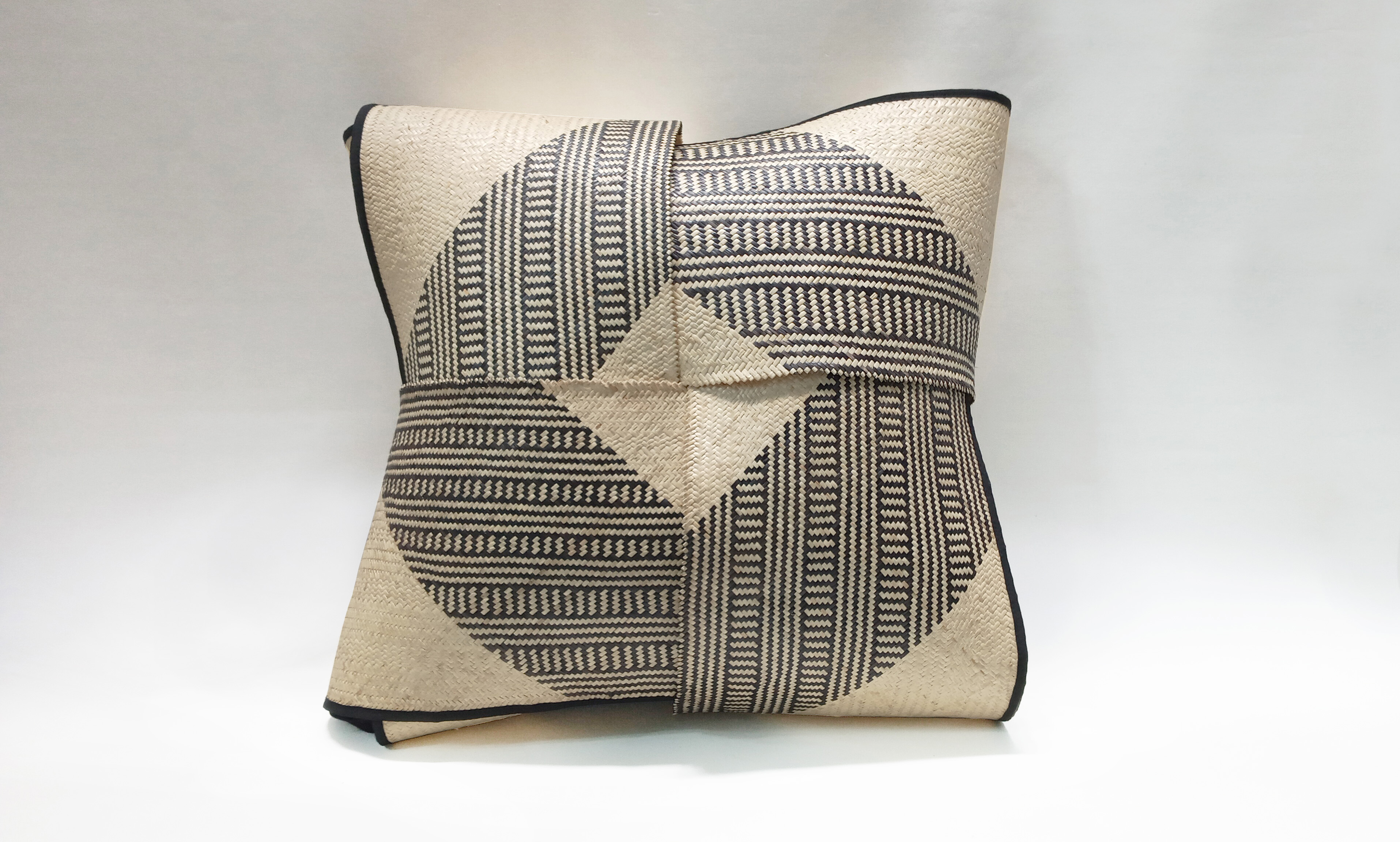
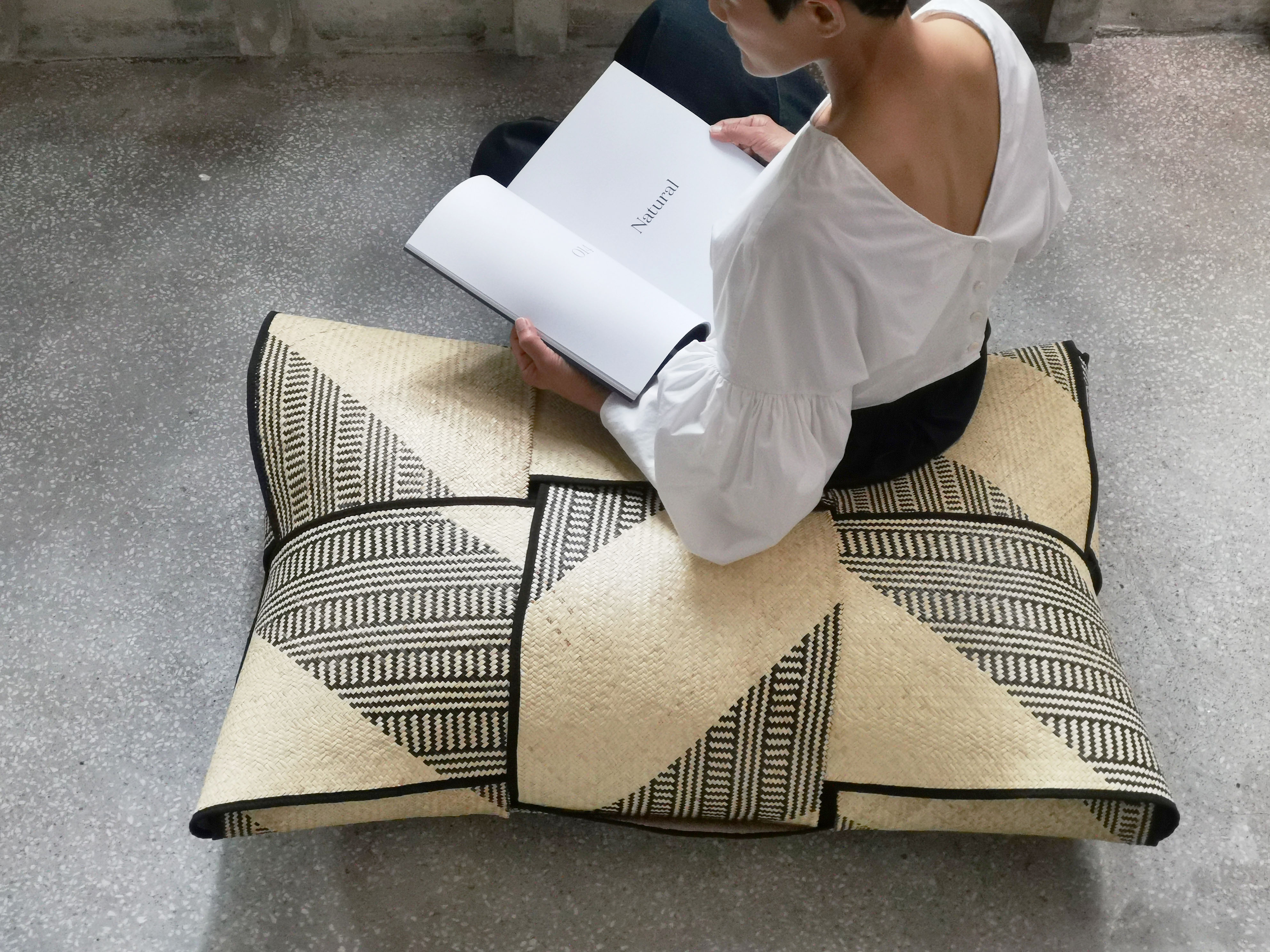
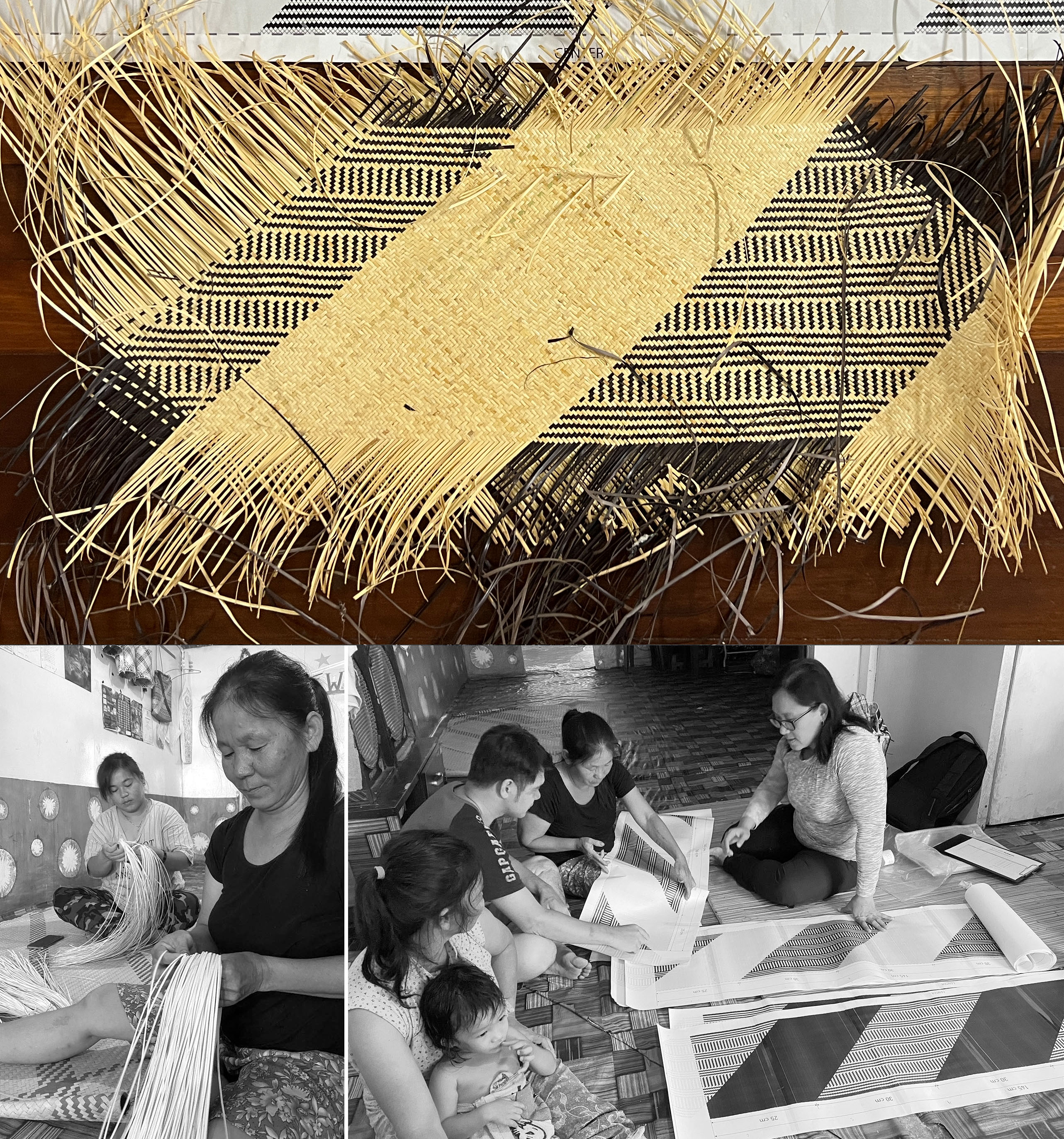
The weavers –
Penan artisans of
Long Kawi village
residing along the
Patah River
(Sarawak's Middle
Baram region).
Penan artisans of
Long Kawi village
residing along the
Patah River
(Sarawak's Middle
Baram region).
The dyeing of black rattan splits
involve boiling them with a
species of leaves (daun kemawah)
and then burying them in mud.
︎Dyeing process
involve boiling them with a
species of leaves (daun kemawah)
and then burying them in mud.
︎Dyeing process
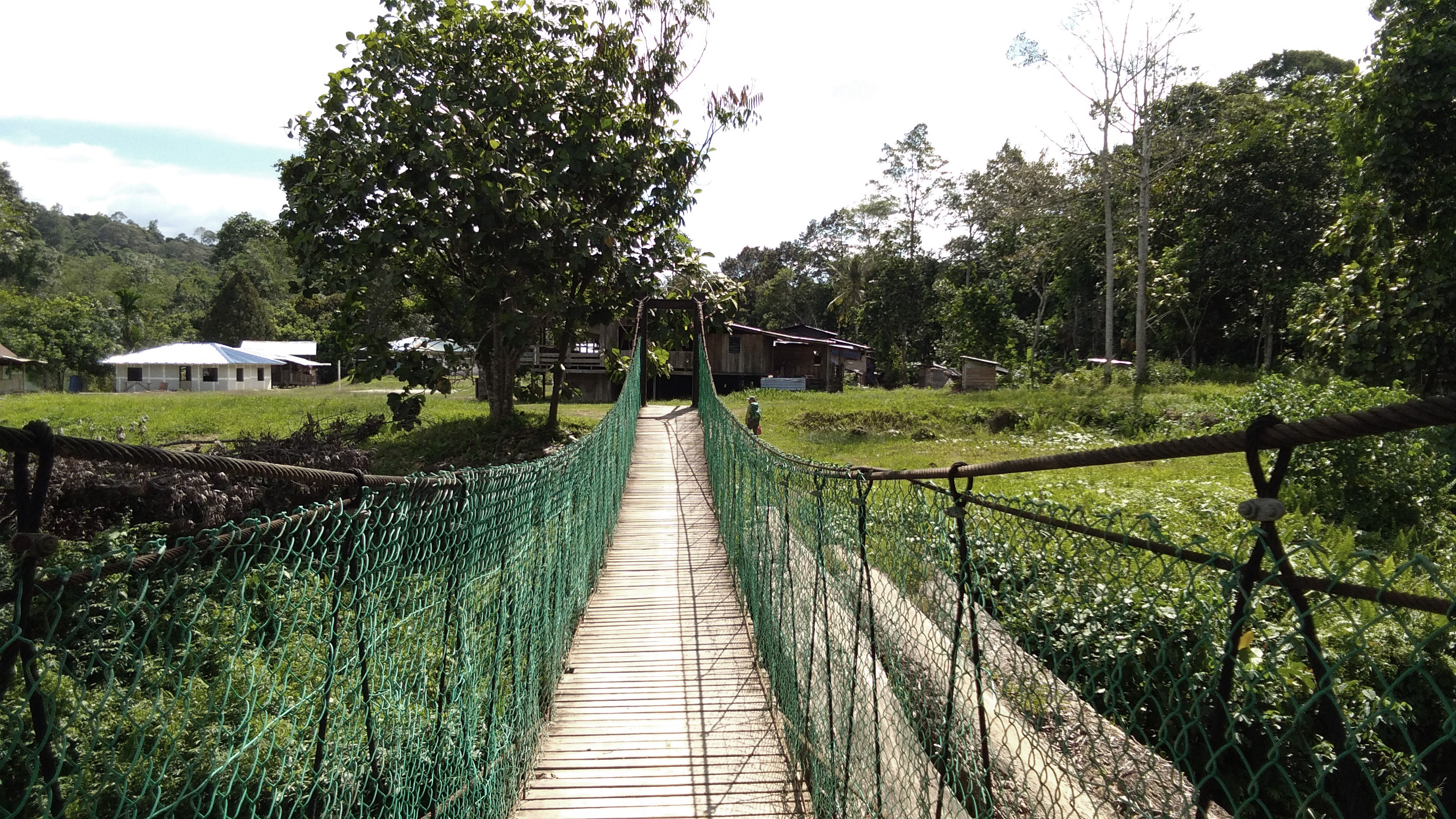
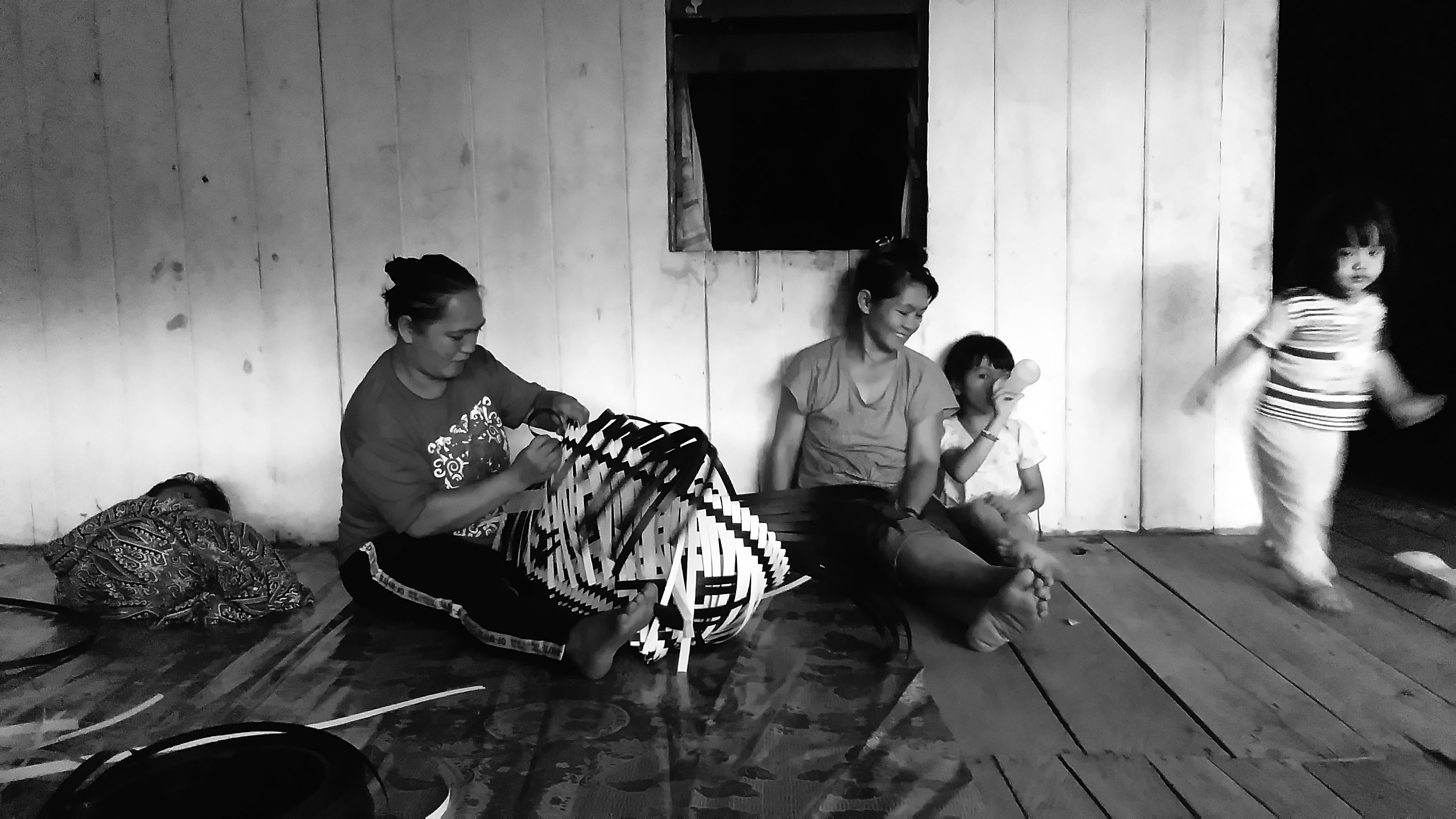
This is Long Balau village that I had the opportunity to visit – full day of briefing and prototyping some designs with the Penan artisans.
